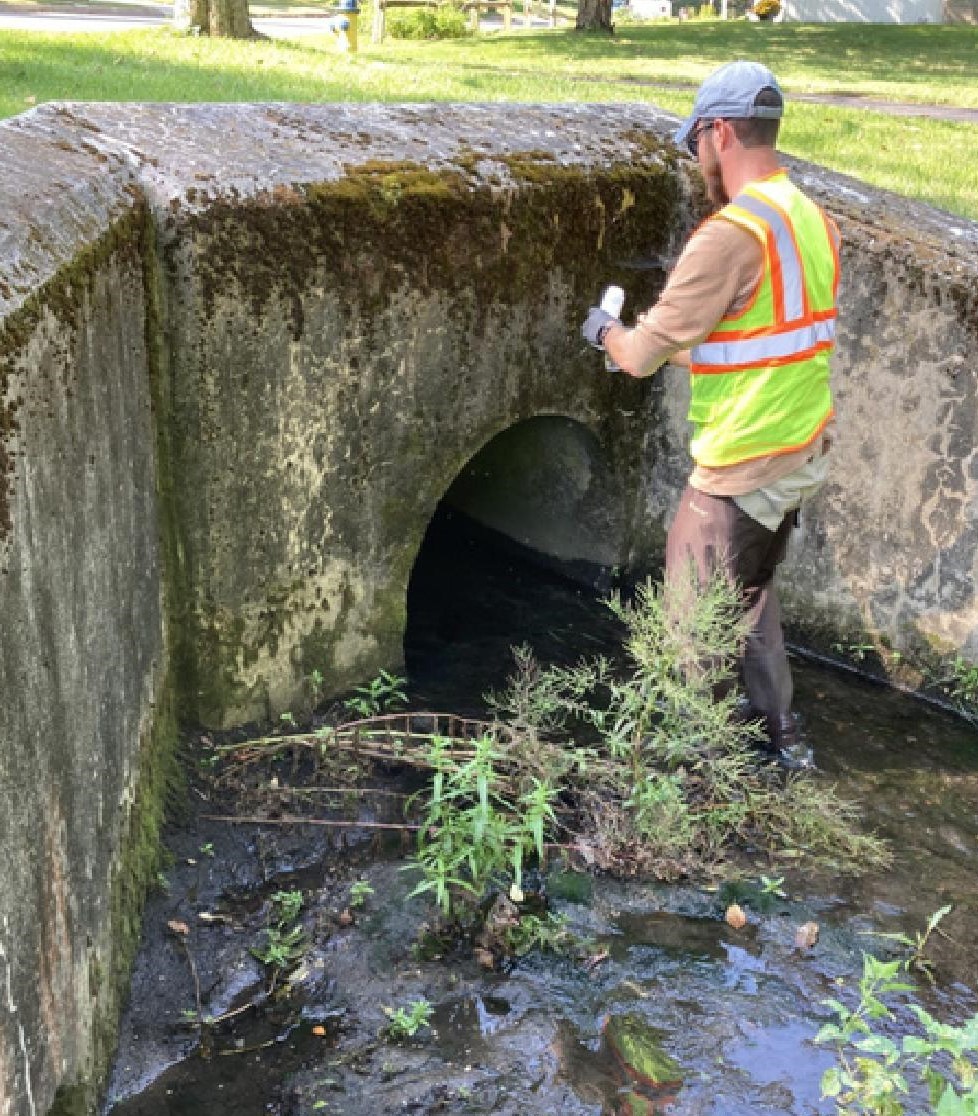
Stormwater runoff is a major source of pollution for our waterways. Warren County Soil & Water Conservation District (WCSWCD) is leading the effort to control this runoff in urban parts of Warren County, and there are ways Warren County residents can help lessen the impact stormwater has on local water quality.
The Municipal Separate Storm Sewer System (MS4) program, overseen by WCSWCD, consists of in-depth management of stormwater runoff in the defined urbanized areas of the county. Municipalities that are designated MS4s, such as Town of Queensbury, are required to follow management plans for their stormwater systems, which include those grates on the road that collect rainwater and snowmelt.
The reason MS4s exist, and why we install green infrastructure projects to clean stormwater runoff, is that most of our road stormwater systems drain to a lake, stream/river, or wetland. Some of these waterbodies are drinking water sources, and through simple methods and education, we can filter stormwater and reduce the potential for unwanted or illicit substances to reach our stormwater system and waterbodies.
When certain pollutants such as motor oil, paint, or other harmful substances reach a stormwater system, it is referred to as an illicit discharge. Learn more here about these types of discharges.
In addition to illicit discharges, WCSWCD and environmental organizations also look out for pollutants of concern. In Warren County, the pollutant of concern is silt or sediment, which often enters a stormwater system from an eroding ditch or bank or from sand used to de-ice roads and driveways in the winter.
In the Town of Queensbury, the pollutants of concern include Phosphorus, Silt/Sediment and Nitrogen. Nitrogen and Phosphorus often enter our stormwater system from fertilizers and chemicals used on lawns and gardens or septic systems that are not maintained or functioning correctly.
We can filter and clean our stormwater before it flows to a stormwater system. Here are a few simple ideas that can help keep stormwater and our waterbodies clean:
- Only Rain in The Drain: Never dump anything other than rainwater into a road storm drain. Remember, most of these drain directly to waterbodies, some of which are drinking water sources.
- Lawn Care: Most lawns drain to a road, so limiting or not using fertilizer or chemicals on your lawn will keep your stormwater runoff cleaner. Instead, leave grass clippings and let them provide nutrients back to the soil. You can also compost your leaves and spread them back onto your lawn for a long-term nutrient boost. “Raise the Blade” on your mower will reduce stormwater runoff, improve your soil health, and allow grass to set deeper roots that will be more drought tolerant during those mid-summer dry spells.
- Pet Waste: Picking up after your dog is a stinky job, but you certainly don’t want that waste to get into our waters.
- Septic Maintenance: Most of Warren County has sandy soil, making septic maintenance important in reducing the chance of a failing system polluting a nearby water body, groundwater, stormwater systems, or, even worse, backing up your home! Stink aside, you want to keep your septic functioning for the health of your homestead soil and yard. Don’t put harsh chemicals down your drain; remember they flow to your septic leach field, which might be where you play! Rain can also collect pollutants from a failing septic and flow to a stormwater system. It might be time for a cleaning!
- Roof Gutters: Don’t let all that roof water go to waste! For a cheap irrigation system, direct roof gutters to a lawn area or better yet, a rain garden for aesthetics and butterfly habitat! If you’d like to irrigate during dry weather, a rain barrel with a hose is your answer.
Warren County Soil & Water Conservation District’s MS4 website includes a section where you can offer your input on the program. Click here to offer comments and learn more.
Additional resources can be found here.
###
